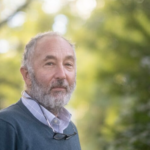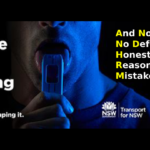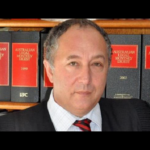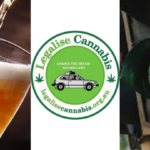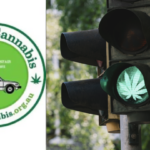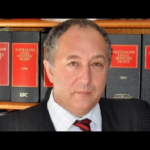NSW Government Continues to Ignore Unjust Drug Driving Laws
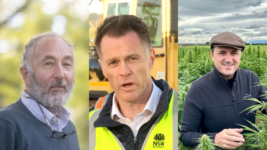
During a premier and finance estimates hearing on Wednesday, committee chair Jeremy Buckingham put it to NSW premier Chris Minns, whether he might seem impaired to the Labor leader as he was presiding over the proceedings.
“No, you seem very sharp,” was the response. And the Legalise Cannabis MLC asked the premier, if he had the time, whether he’d be prepared to drive to Bondi with him to have a coffee, as he wasn’t impaired and does hold a valid licence, to which Minns said he would be.
Buckingham then asked the premier whether it’d surprise him to know that he’d used medicinal cannabis the night before and, during their drive, if pulled over by NSW police for roadside drug testing (RDT), the Legalise Cannabis MLC could lose his licence due to THC presence in his system.
Minns outlined his understanding of what Buckingham was getting at, which he said was, as the evidence shows, detection exists longer than impairment, meaning a person using legal or illegal cannabis can test positive and, therefore, lose their licence, even though they’re not intoxicated.
This driving injustice exists, in the premier’s estimate, for around over 300,000 people who are legally prescribed cannabis medicine in this state, yet he then also sets out that this means “if they want to use a car while accessing the health benefits of… medicinal cannabis, then they can’t do it”.
Illegitimate law? Who cares?
“One of the reasons I left the bench was because of the drug driving laws,” former NSW Magistrate David Heilpern told the 20 August hearing of the NSW parliamentary inquiry into the NSW cannabis regulatory framework and the impact it has on society.
“There’s an argument here, but we now have literally hundreds of thousands of people in NSW using medicinal cannabis legally. They cannot drive,” the ex-Lismore magistrate explained, adding that “some insurers will not cover them because they’re committing a crime”.
Random breath testing (RBT) for alcohol, which uses scientifically proven levels of alcohol in a person’s blood to ascertain not only that they’re drunk, but further the 1982 introduced system verifies a driver’s level of drunkenness and then punishes them in accordance with their state.
However, ever since they were introduced in 2007, roadside testing for drug driving has been flawed, as it doesn’t test for levels of intoxication, instead a saliva swab is taken and if any presence of THC, amphetamines, MDMA or cocaine is found in a driver’s system, they’ve broken the law.
This means that people are regularly losing their licences and being penalised for driving whilst not under the influence of any of these drugs.
Yet, since medicinal cannabis was legalised nationwide in 2016, these laws have been capturing unintoxicated legally prescribed takers of cannabis medicines, and their excuses are not accepted.
“In NSW… we have more tests than the rest of the world combined,” Heilpern confirmed. “We are absolutely obsessed with a scheme that is unproven – has no road safety measures proven and not one coronial report says that medicinal cannabis has been responsible for a single death in Australia.”
The good old days
Section 111 of the Road Transport Act 2013 (NSW) contains the offence of drug driving, or driving with the presence of certain drugs (other than alcohol) in oral fluid, blood or urine, which means that substances tested for only need to appear in a driver’s system to indicate a positive result.
Since May 2019, a first-time drug driving offender receives a 3-month licence disqualification and an on-the-spot fine of $572, which means that offenders avoid going to court, and as well, this penalisation occurs regardless of the quantity of a drug in a driver’s system.
And a second or subsequent offence carries a $3,300 fine and a 12-month licence disqualification.
The detection lasting longer than intoxication equation applies to all of the illicit drugs captured under the scheme, but when it comes to cannabis, whether legal or not, it’s well known to be traceable in a person’s system from anywhere from a few days after consumption to a few months.
So, whilst on the bench, Heilpern made a number of controversial and significant rulings in regard to cannabis driving mid-last decade, which saw drivers that had legitimately been found by the court to have not consumed cannabis and then driven under its influence, acquitted of wrongdoing.
The most well-known was 2016’s Carrall, which found the defendant, on following the advice of a police officer, had waited nine days after smoking some cannabis to then again drive, yet he still, on having followed the advice, tested positive to cannabis driving. And Heilpern found him not guilty.
However, a rather drastic judicial development occurred last year, when the NSW District Court ruled that drug driving is an absolute liability offence, which means there are no defences open to it, including honest and reasonable mistake of fact. And this was confirmed on appeal last February.
So, it doesn’t matter if an individual smoked a joint three weeks back or they took a prescribed medical cannabis pill 24 hours prior to being pulled over by NSW police, as if they then test positive and are charged with cannabis driving, they’re guilty regardless.
No right to drive
The NSW premier’s assessment of the driving quandary that the Legalise Cannabis MLC put to him possibly involving licence suspension if the latter was pulled over for a drug driving test appeared to be that the law is that medicinal cannabis users can’t drive full stop.
Minns did then add that when he first entered parliament there were only about 1,000 legal cannabis scripts in NSW and now this has ballooned to over 300,000, so “it’s an area of the law that needs to be looked at”, and while he couldn’t commit then, “the drug summit will investigate it”.
“The furphies that have been thrown up by this government to not change the laws to meet the Tasmanian, the American, the northern European requirements are farcical,” Heilpern further told the cannabis parliamentary hearing last week.
The former NSW Magistrate was renowned for the decisions he’d made regarding cannabis driving at Lismore Local Court, as he was dealing with NSW Northern Rivers region cases, which is an area known for cannabis use and it has also been a flashpoint of NSW police drug driving operations.
These days, Heilpern is the campaign lead at Drive Change, which aims to see the drug driving regime overhauled. And he points out that in Tasmania, there’s been a law that allows medicinal cannabis patients to appeal a cannabis driving charge due to using the legal medicine for years now.
Since last August, Buckingham has had the Road Transport Amendment (Medicinal Cannabis) Bill 2023 sitting before parliament, which is a piece of legislation that would simply provide those who use the legal medication with a defence to allow them to drive.
However, NSW parliament has previously voted down an attempt to see this defence established, which was raised during the last term by NSW Greens MLC Cate Faehrmann.
The former Lismore magistrate added during last week’s hearing that the latest excuse from authorities for not contemplating the changing of the laws was that if medicinal cannabis users could drive there would be no way of ascertaining whether the THC in their system was legally obtained.
“That is a hurdle that will never, ever be crossed. It’s never crossed with alcohol. It’s never crossed with pharmaceutical drugs,” Heilpern told the inquiry. “Who cares were it comes from? The issue is impairment.”
And the other issue at play here is that 17-year-old laws continue to be on the books, despite having been called out as unjust the entire time, because NSW authorities have been using them as a backdoor means to penalise civilians for their illicit drug use.


